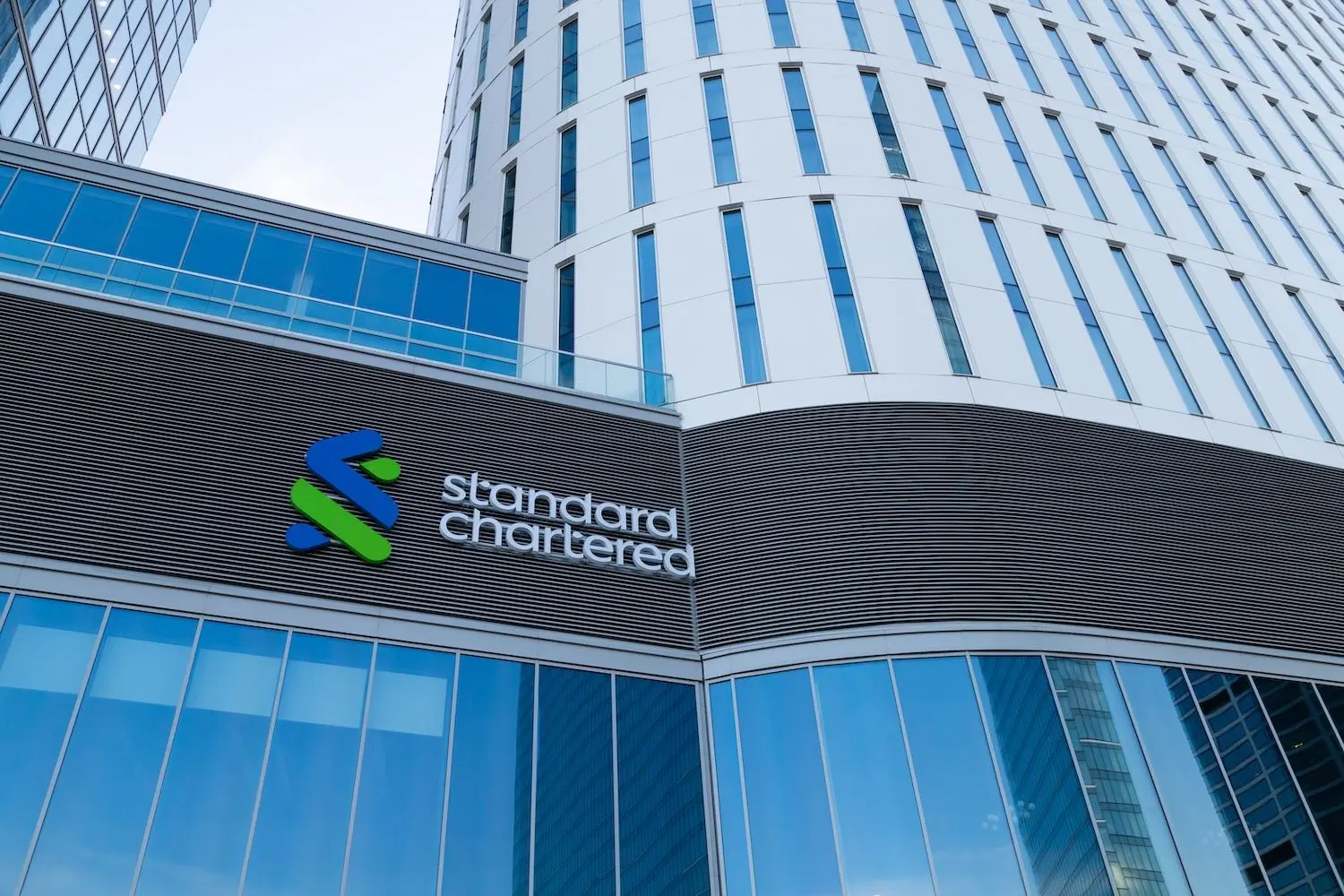Standard Chartered has positioned Bitcoin as the linchpin for decentralized finance, with the bank's head of digital assets research warning that a collapse in the cryptocurrency would undermine efforts to replace traditional financial systems. Geoff Kendrick, who leads foreign exchange and digital assets research at the London-based bank, told clients that Bitcoin's structural soundness now determines whether DeFi can compete with established banking institutions.
What to Know:
- Standard Chartered's Geoff Kendrick calls Bitcoin the "apex asset" underpinning decentralized finance growth and warns its collapse would derail the movement to replace traditional banking systems.
- The bank executive outlined a three-step investment strategy that includes purchases at current levels, at $103,000, and when the Bitcoin-gold ratio exceeds 30.
- Kendrick suggests Bitcoin's recent drop below $100,000 may be the last such dip, marking a final entry point before renewed appreciation.
Bank Executive Frames Bitcoin as Foundation for Financial Shift
Kendrick's assessment ahead of next week's Singapore FinTech Festival represents a departure from typical price speculation. The executive emphasized Bitcoin's role as infrastructure rather than simply an investment vehicle. "It is fair to say these days I spend most of my time talking about DeFi taking over TradFi…but for that to be possible, as the apex asset, Bitcoin needs to not collapse," he wrote to clients.
The comments arrive as thousands of financial professionals, regulators and technology developers prepare to gather in Singapore to discuss blockchain infrastructure and open finance systems.
Standard Chartered stands among a small group of major banks that publish regular research on digital assets, giving Kendrick's perspective added weight in institutional circles.
His framing moves beyond short-term trading concerns to address systemic questions about Bitcoin's function in a changing financial landscape.
Market observers noted the shift in emphasis. One analyst responding to Kendrick's remarks said DeFi cannot replace traditional finance if its cornerstone asset proves volatile or unreliable. The observation underscores growing recognition that Bitcoin's performance affects more than individual portfolios—it influences the viability of an entire financial architecture built on decentralized principles.
Investment Strategy Targets Three Price Thresholds
Kendrick provided clients with a structured approach to Bitcoin accumulation.
The plan divides purchases into three stages, starting with a 25% allocation at current price levels. Investors would add another 25% if Bitcoin closes above $103,000. The final 50% would come when the Bitcoin-gold ratio climbs above 30, a metric comparing Bitcoin's value to the precious metal.
The strategy assumes Bitcoin's recent move below $100,000 represents a rare buying opportunity.
Kendrick has told clients this dip may be the last time the cryptocurrency trades at that level, suggesting a sustained upward trajectory. His framework provides specific trigger points rather than general recommendations, a technical approach that reflects Standard Chartered's institutional orientation.
The Bitcoin-gold ratio serves as an alternative valuation measure that compares the cryptocurrency to a traditional store of value. When the ratio exceeds 30, one Bitcoin would be worth more than 30 times the price of an ounce of gold.
This metric offers investors a way to assess Bitcoin's relative strength against a historically stable asset.
Understanding Key Financial Terms
Decentralized finance, or DeFi, refers to financial services built on blockchain technology that operate without traditional intermediaries like banks. These systems use smart contracts—self-executing code—to facilitate lending, trading and other transactions. Traditional finance, abbreviated as TradFi, encompasses conventional banking, brokerage and investment institutions regulated by government authorities.
The term "apex asset" in Kendrick's analysis positions Bitcoin at the top of a hierarchy within digital finance. This classification suggests Bitcoin functions as a reserve asset or foundation for other cryptocurrency and DeFi activities. If Bitcoin fails, the reasoning goes, the entire structure built on top of it faces collapse.
Bitcoin's relationship to DeFi extends beyond its use as collateral or a trading pair. The cryptocurrency represents proof that decentralized systems can maintain value and security over time. Its track record since 2009 provides evidence that alternatives to traditional banking infrastructure can work at scale.
Closing Thoughts
Kendrick's analysis links Bitcoin's performance directly to the viability of decentralized financial systems. His three-stage investment plan reflects confidence that the cryptocurrency will maintain support above $100,000 and eventually strengthen against gold. Whether DeFi ultimately challenges traditional finance at scale remains uncertain, but Standard Chartered's research positions Bitcoin's stability as a prerequisite for that outcome.



